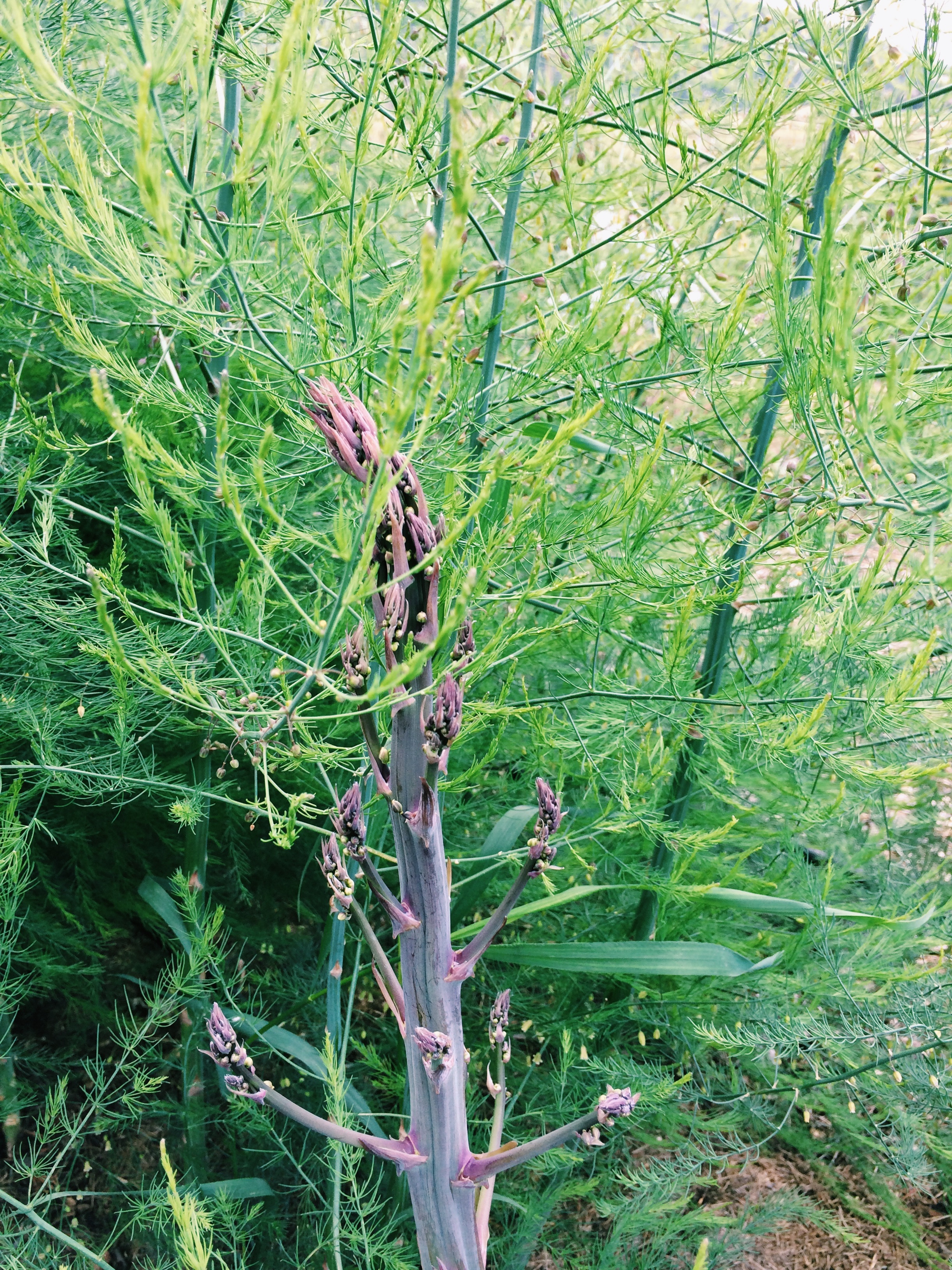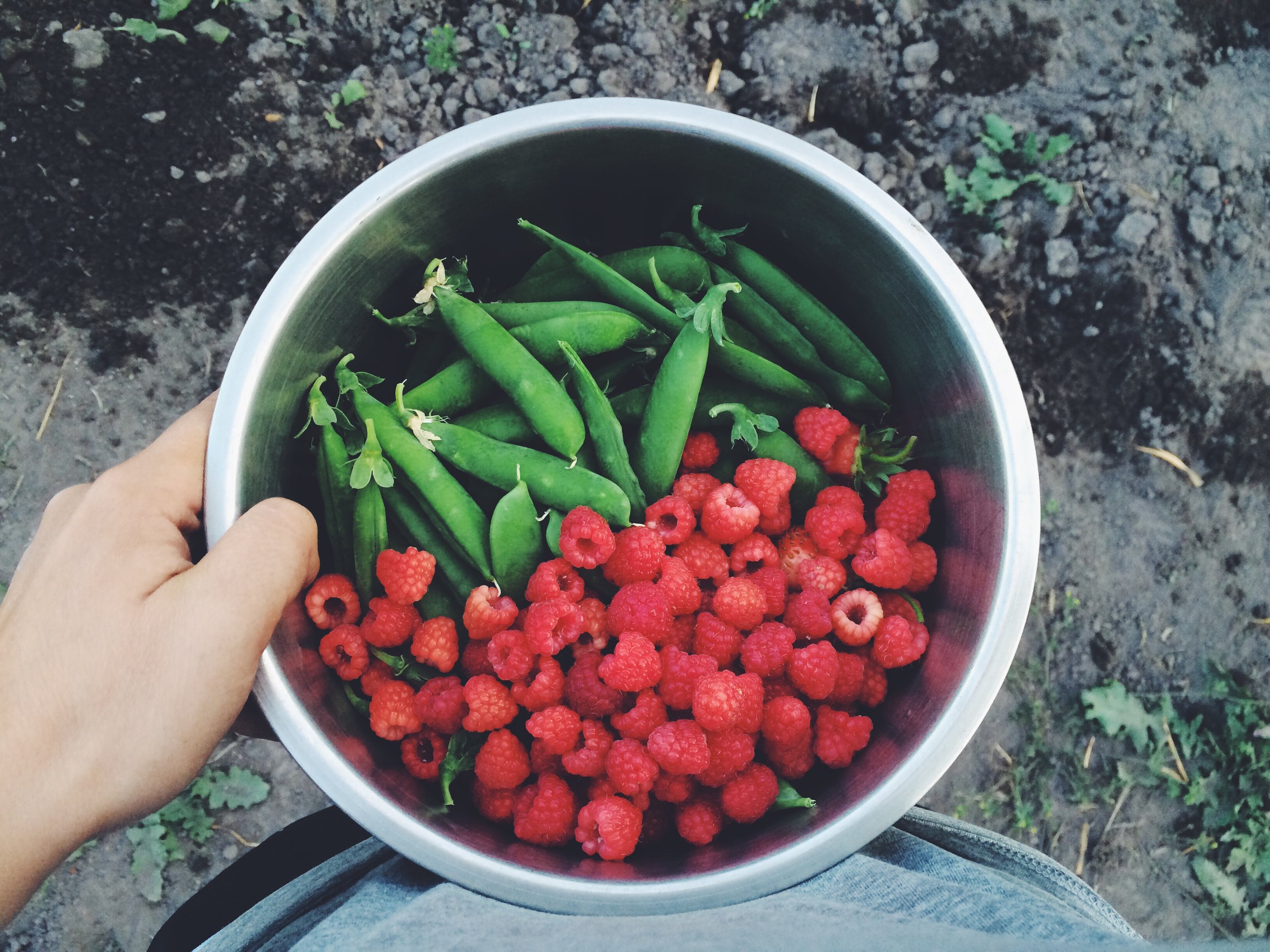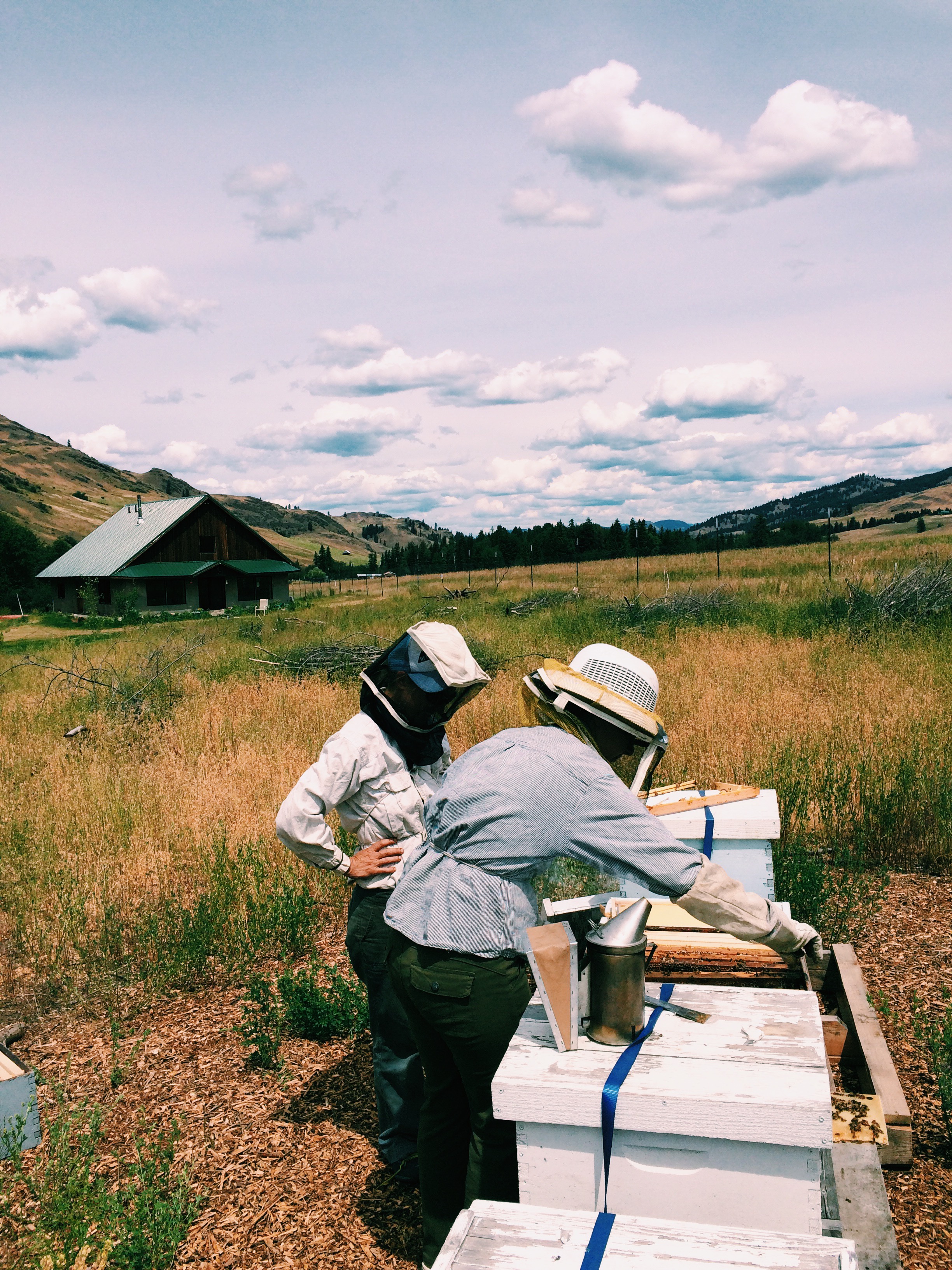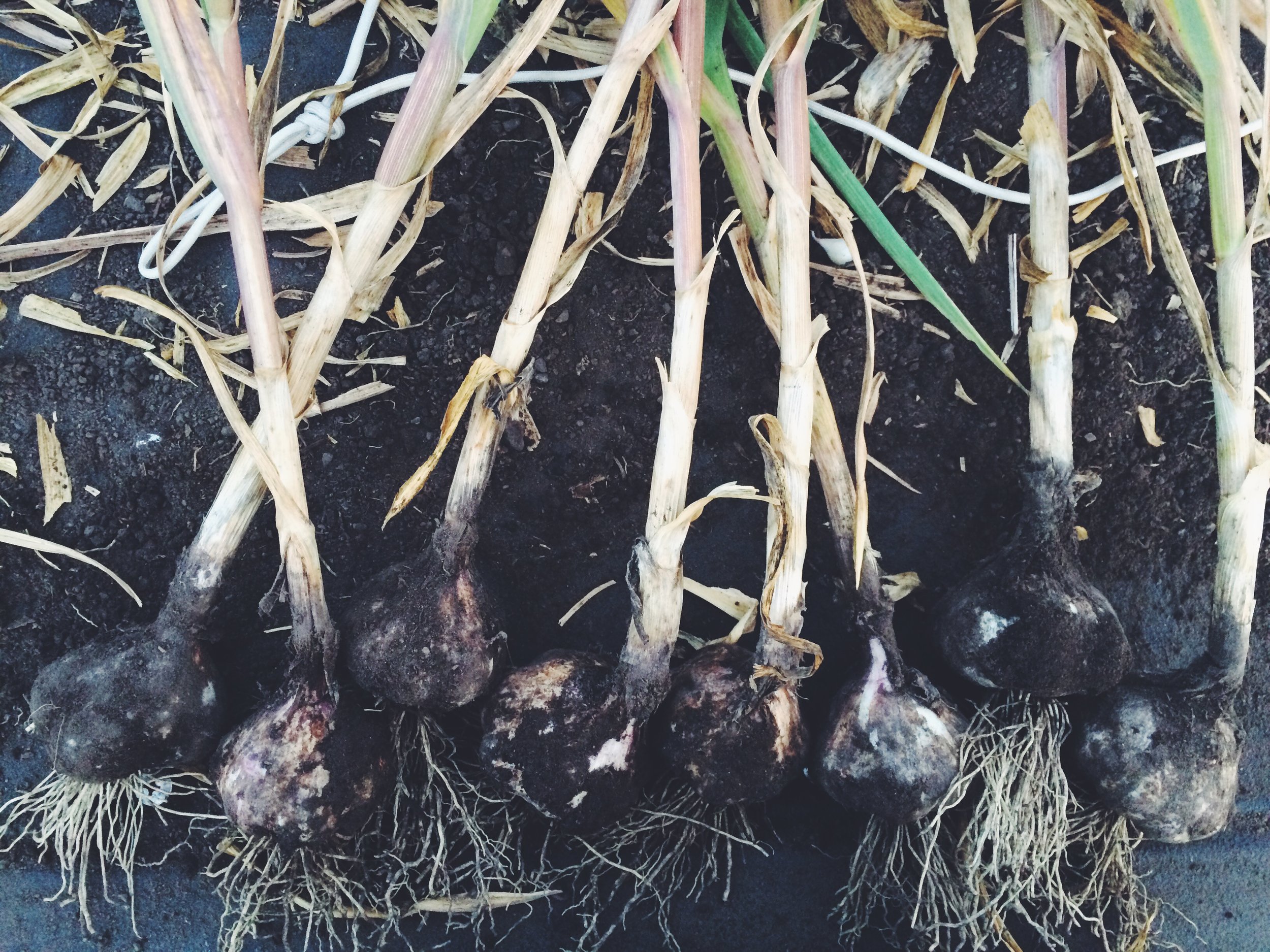Author: John Lucas Kovasckitz with Lisa Eversgerd
In the summer of 2015, my wife and I quit our jobs and traveled west for four months. We were newlyweds and the world was ours. We spent time in some of the most incredible cities in America: Chicago, Seattle, Portland, San Fransisco, San Diego...and we visited a dozen national parks. We hiked to the bottom of the Grand Canyon and back in one night, and we backpacked in the Tetons. We hiked Angel’s Landing and waded through the Narrows in Zion, we camped on the coast in Olympic, we hiked our first 14er in Colorado, we took in the vastness of Yosemite, and we walked among the Redwoods.
But almost surprisingly upon our return, when people would ask what our favorite spot was on the trip, my answer was Chesaw, Washington. Chesaw is a no-stoplight town near the border of Canada, holding a rodeo area used only for the Fourth of July, a mercantile, a gas station, and a small bar and restaurant. Chesaw also holds some of the most gracious and kind people I’ve ever met - including now my friend and one of my true heroes of life: Lisa Eversgerd.
Lisa is an endurance athlete, a garlic farmer, a homesteader and builder, a soap-maker, a beekeeper, a dreamer and a tireless worker, and a patient teacher with a generous laugh. Lisa also weaves pine needle baskets, sharpens crosscut saws, and is a vegan but doesn’t talk about it much.
In other words, Lisa is one of the rarest breeds of humanity: a humble badass.
Lisa and her husband Jason are homesteaders on twenty acres - where every structure, fence, and row of crops is the direct result of the labor of their hands. Their property contains a beautiful and simple straw bale home (heated by a woodstove in winter, and due to the thickness of the straw is cooled effectively merely by fans in the heat of summer), a sauna, a small guest house where we stayed, a drying cellar, sheds, lovingly maintained gardens and rows of garlic (their cash crop), and since our stay they have added a large greenhouse.
We connected with Lisa and Jason through the WWOOFing database (Worldwide Opportunities on Organic Farms), and stayed for three weeks on their farm. Our time was spent primarily with Lisa, as Jason works for the Forest Service as a Wildland Fighter and the fires were especially bad that year. In the mornings, Danielle and I would wander the grounds picking strawberries and raspberries for breakfast, and then do a few tasks - mounding potatoes, building rudimentary cabinets that closely resembled coffins, harvesting, planting, weeding, and generally following Lisa around to learn whatever we could - before she would tell us we’d worked too much and chase us off (although she seemed to never stop, from dawn to dusk). We would go to the lake, read books or play music, throw sticks for their pup Lucy, or wander to the neighbors’ houses to hear stories. Lisa and Jason’s farm borders communal hippy land - the remaining families from decades past are incredible and warm people, and have built their own pieces of paradise in the foothills.
Danielle and I arrived in time for garlic harvesting, and several evenings after the sun went down (as bright sunlight can burn garlic), we would dig up garlic with Lisa, row after row - occasionally sharing stories but mainly silent, united in our common work.
The guest house where we stayed had an outdoor composting toilet (essentially a bucket with a seat), and I loved the simplicity of it all. I loved showering under the stars at night, and I loved the need to do so - I loved the black soil, alive, underneath my fingernails.
We learned a lot on that farm from Lisa, and it is an experience that I will never forget. It is people like Lisa that give me hope for our culture, for our planet. It is an honor to share some of her story and insights in the interview below, and my hope is that it will add a spark to us all.
Can you give a basic timeline of your life?
Lisa: I grew up in a small town in the mid-west with three beautiful sisters and two very supportive, loving parents. Life was sheltered in this small town, but I began to break away and find myself at an amazing summer camp tucked away in the middle of the Shawnee National Forest. I returned to this camp for 10 summers, and this is where I developed my deep love of nature, learned the joy of hard, dirty, work and found a family in all of the friends I made there.
After earning my degree in Outdoor Recreation, I started working for the Forest Service on a Trail Crew and again found incredible joy in the hard, physical, work and in the magic I found in the forests and mountains of the west. I spent 16 incredible seasons working on Trail Crews in Alaska, Arizona, Montana and Washington. I went out with a crew for nine days at a time…camping, clearing trails of downed logs with a two-man crosscut saw, and building bridges across swift rivers. This experience - spending 18 days a month living and working in Wilderness areas - solidified my connection with mother nature. The forest, the mountains, and the rivers became my home. The rugged terrain and often adverse weather conditions humbled me, the hours around a campfire in the dark morning hours grounded me, the endless hours of hiking with a heavy backpack and tools made me tough, and the glorious scenery enlivened me.
The Trail Crew work usually ended by November, and I would then load up my backpack for adventures of a different kind. I would travel to other countries and continue exploring this beautiful planet and the incredible people that inhabit it. I would often spend time WWOOFing on farms, enjoying the connection with families, learning about organic farming, and exploring the countryside. I met kind, generous, inspiring people everywhere I traveled. Traveling is where I first discovered the joy of living in my moments - taking each day as it comes and enjoying every moment - no matter what the situation…finding peace in uncomfortable situations, discovering beauty in simple things and appreciating all of the little things that often go unnoticed. I found incredible peace and joy in learning to fully live in the moment, and I carry this life lesson into all of my days.
Sometime between Alaska and Montana, I left the US to serve as a Peace Corp Volunteer in Mali, West Africa. This experience was so many things...living alone in a rural African village, communicating solely in a local tribal language, encountering extreme poverty, extreme sickness, extreme malnutrition and starvation, trying to find a way to help my new community...it was exciting, tragic, humbling, and overwhelming at times. But of all the things I remember about my time in Mali, it is the spirit of the Malians that I remember the most. The people who lived there were beyond kind, generous, and happy. They had very few possessions, but they would sing and dance and celebrate the life they had at every opportunity. They were quick to laugh, help out a neighbor, or to share what little food they had - they taught me so much.
After the Peace Corps, while living and working in Montana, I met my wonderful husband Jason. We relocated to a 20 acre piece of land in rural Washington close to the Canadian border, and began building our life together. We’ve been here for nine years now, and our love for each other, for the land, and for our community here continues to grow every day.
Do you have any spiritual practices or principles?
Lisa: I believe in the power of being in nature and being grateful for every moment of my life. I believe in simple living, nourishing my body and soul with organic and healthy food, helping out neighbors and those less fortunate, and never, ever, forgetting how lucky I am to be alive and healthy. I believe in being kind, generous, patient, and open-minded and accepting of all people - regardless of their race, sex, political and religious beliefs. I believe in finding the good in everyone and every situation I encounter in life. I believe in hard work, living without greed, celebrating life every day, living in the moment, and loving with all of my heart.
What has ultra-running and other long distance feats of endurance taught you?
Lisa: My long distance adventures have taught me many things. I have learned, and am continually reminded, that any feat is 90% mental - you can do anything that you set your mind to doing. Your mind is what normally determines your success. I have learned that you can keep going, even when you think you are exhausted…the 2nd, 3rd…10th wind always comes and gives you energy to continue. You just have to be patient, have confidence, and wait for it. I have learned that there are places in our minds that can only be accessed by certain activities - meditation and ultra distance adventures, to name a few. It is like a secret key to parts of your brain otherwise unavailable - where you discover peace, heighten senses, and a general feeling of calm and focus. Long distance adventures also humble me; exposure to the elements, rugged terrain, lack of water sources and other challenges that arise on these type of adventures make me realize how small I am in the world, how insignificant my “problems” may be, how the world and life is so much bigger than all of the petty stuff we humans stress about. I learn to appreciate the small things: a few moments of luxurious sleep on the side of the trail, cool mountain water when your thirst is huge and warm sunshine when you have been so cold. These adventures also reinforce my desire to live in the moment...to simply enjoy the journey, and to not focus on how many miles are left or how much elevation gain there will be today - I just enjoy the ride. All of these lessons I take back to my daily life.
My hope is that in this generation there is an uprising of people going back to the land in an array of capacities, and I also feel that there is at times an over-glorification - or a glossing over - of the true work involved. Having taken an ‘empty’ piece of land and created it into what it is now, what advice would you have for aspiring small farmers or homesteaders?
Lisa: I would highly encourage anyone who desires a back-to-the-land life. We have the ability to create our own reality in this big, beautiful world. Living a simple, self-sufficient, happy life - growing food, tending animals, and working the land can be amazing. This dream requires lots and lots of hard work, planning, knowledge, money, and determination. The amount of financial support needed to build a homestead should not be underestimated - building anything is very expensive. People often think if they are doing the work themselves, that it will not cost much. You will certainly save money by providing the labor, but everything else will cost you more money than you imagine. Drilling a well can cost $10,000-$20,000, getting power (conventional or solar) can cost another $10,000-$20,000, concrete for a foundation can cost $3,000, roofing material can cost $5,000 - it is all expensive. In addition, the amount of work needed to create a homestead is also beyond what most people can imagine.
Building anything is slow, and there are a million important steps to consider. Search out multiple people and books for information, get experience building small structures and growing spaces, learn from others, and never, ever, cut corners. Skipping a step, or not researching a step fully, can cause nightmares in the future. Do it right the first time - always! Listen when people give you tips - people will tell you what has worked or not worked for them - you can learn so much from other people’s mistakes. Get to know the people at your local building or gardening supply and ask lots of questions - these people can be a wealth of knowledge. Break the work up into steps with tangible goals; sometimes looking at the big picture of all you have left to do can be overwhelming and seem impossible to complete. Take it step by step, one task at a time, and reward yourself. It is also important to remember during the tough times...when you are working a million hours a week, exhausted, frustrated and overwhelmed, that you are doing it - you are creating your homestead. Celebrate your accomplishments…you are living your dream!
One of the main impressions I have of you is that of a tireless worker, but one who finds rest and joy in the process and labor. If this holds true for you, how have you come to this place, and what makes you want to get out of bed in the morning the next day to do it again?
Lisa: I do find joy and peace in working hard towards a goal - simply being in my moments. I love growing organic food, creating a home, building a dream and establishing a way to make a living from my rural, peaceful, homestead. I feel incredibly fortunate to be working on my dream. Even when tirelessly working on a project or task, I feel so blessed to be on my land and free to live my life as I choose. Each morning I rise, I thank my lucky stars for everything I have...my health, my beautiful family, my loving husband, my freedom, my land, healthy food, and my mind.
I am, however, trying to slow down the “work” aspect of my life and find more time for fun - adventures in the mountains, and time with friends and family. I have worked hard my entire life, and I am looking to slow down a bit and add a little balance to my life...to reward myself for all we’ve created and simply enjoy it.
We didn’t get to spend much time with Jason, but my main impression of him is: “man, there’s a guy who loves his wife.” How has working, dreaming, and creating with your partner in such a tangible way strengthened your relationship?
Lisa: It has been lovely - truly wonderful - building a life together. Every day we are grateful that we found each other in this big ol’ crazy world. Building a homestead and farm of course has its challenges and stressful moments, but through communication, hard work, love, and understanding anything can be accomplished. We try and keep it all in perspective if a situation becomes stressful…in the big picture of the world, with war, disease, poverty, starvation…we are living the dream life. We celebrate our successes and learn from our failures. We support each other, nourish each other’s passions, and are the rock in each other’s lives. Together we have learned that we can do anything; we can create our own reality - there is such peace and comfort knowing that you will always have your partner by your side and that anything is possible in this life. We have worked through so much together, and this provides us the confidence that we will work through anything that happens in our future lives…with love and kindness.
For more information on Lisa and Jason’s farm, or to order handmade soap (it’s incredible), garlic powder, or a pine needle basket, visit lostcreekorganics.com
[Click blog title to access commenting]






















